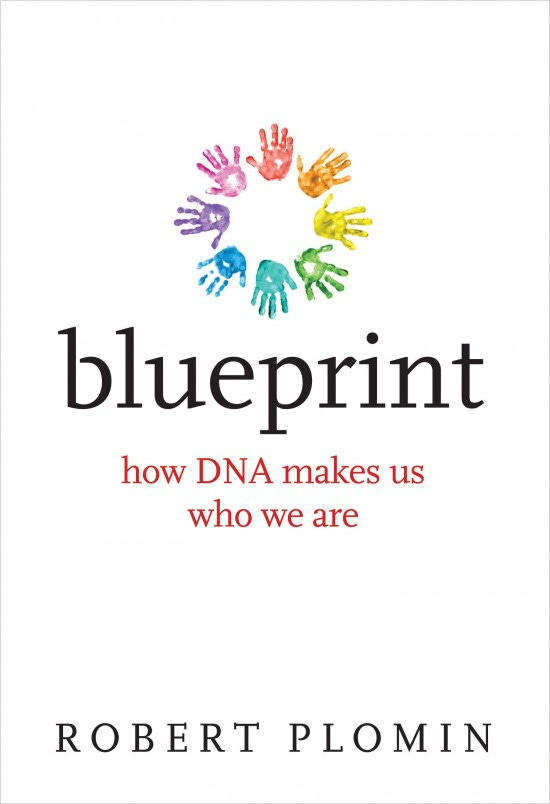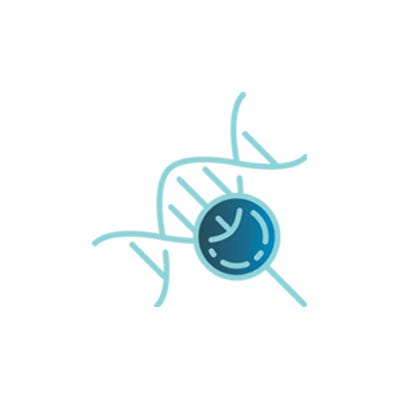"DNA makes us who we are"
Even if you were switched at birth, you'd still be the same person, says Robert Plomin. Because it's mostly your DNA that makes you the individual that you are.
I admit that I did not see the book Blueprint: How DNA Makes Us Who We Are when it first came out in 2018. It was only this year, when I came upon an article with the arresting title "Parents matter but they don't make a difference," that I found out about it and read it.
The book is written by Robert Plomin, a renowned American psychologist and geneticist at King's College London in the UK. He started and still runs the Twins Early Development Study, which has followed 10,000 pairs of twins from infancy to adulthood.
I was already familiar with Plomin's work — I had interviewed him way back when I was a staff writer with New Scientist magazine — and I remembered it as powerful and controversial. A few weeks ago, he graciously agreed to meet me on Zoom, where we talked about some of the implications for assisted reproduction.
7 minute read
In your book, you say "the most important thing that parents give to their child is their genes." That's kind of hard to read.
For some people that seems preposterous. But after 50 years of research in the field, I firmly believe it. DNA makes us who we are. It makes us who we are as individuals. The major systematic force making us who we are as individuals is DNA.
We like to think that parenting is at least as important.
It's so hard to believe that the family environment doesn't have much of an effect.
There are correlations between parenting and kids' outcomes. And we've always assumed that it's causal. Parents who read a lot to their kids, for instance, have kids who do well at school. If the number of books on the shelf at home correlates with how well kids do at school, we don't even think about it, we just assume that correlation is causal.
But what about genetics? Parents and kids are 50 percent related genetically. So parents who are well educated and like to read are going to have kids who like to read and are good at school.
And at first it seems crazy. I mean, parents who read a lot? They make their kids read a lot.
But the answer is: they're genetically related.
We resemble our parents and our siblings because we are similar to them genetically, not because we grew up in the same environment. Not because we experienced the same opportunities or traumas.
Have you seen the film Three Identical Strangers?
Yes — about the triplets adopted at birth by separate families, but who didn't know the others even existed.
What the film documents is that if you'd been switched at birth in the maternity room and you were raised with a different family, you would still be essentially who you are today. The systematic DNA forces would be the same. The fact that you were in a different family, amazingly, wouldn't make much difference. As it didn't make much difference with those three identical twins.
You studied people who'd been adopted at birth to see how similar they were to their genetic mothers. The mothers did cognitive tests and answered all sorts of questions about personality, interests, talents, education, work and even smoking and drinking habits. You got the same information from the adoptive parents and then later from the adopted people themselves. And you compared it to what you found in parents who'd raised their own genetic kids.
I was kind of surprised that adoptive parents weren't just looking for a nurture message. They were very open-minded about finding that there was substantial genetic influence on most of the things we studied. They were surprised to find out how heritable weight is, for instance. They really wanted to know to what extent things are heritable.
This was the seventies. I knew several women who'd waited until their late thirties to have a kid. And they honestly believed it was all tender loving care. They really did go out to a bar for a one night stand. They didn't know anything about the guy. All that mattered was parental love. I tried to dissuade them from that.
Later, you studied thousands of twins in the UK. Overall, a lot of what you found about heritability is pretty surprising. It's not just weight. You found divorce was heritable. And the amount of TV a person watched.
The major systematic factor affecting divorce is genetics. After controlling for genetics, we found no environmental predictors of divorce. And I was stunned by the TV results. But birth mothers' television viewing correlated significantly with their adopted-away children's television viewing, even though they had not seen each other after the first week of the child's life.
It makes me wonder what you could learn by studying donor offspring. There are quite a few very large sperm donor families out there — with hundreds of offspring all conceived from the same man's sperm, but conceived with different mothers and raised in all sorts of different circumstances.
That would be like an adoption study involving half-siblings adopted apart. But it would be better because, as you say, instead of having two or three half-siblings, there could be dozens of half-siblings from the same father and reared in different families. Although half-siblings are only 25 percent similar genetically, with a large sample this would be a useful design. Collecting extensive data on them would be key, but with online testing, that wouldn't need to be expensive.
Given what you know, if you were looking for a sperm or egg donor right now, what information about that donor would you want?
It's a great question. Most of the people who are doing assisted reproduction are probably university educated, well-to-do people.
That's not always the case.
Well, for university-educated parents, without a doubt, the number one characteristic, once you exclude medical genetic diseases and that sort of thing, is intelligence. General learning ability. Intelligence is highly heritable.
How would you look for indicators of intelligence in a donor profile?
Well, years of education is a very coarse indicator, but it correlates very highly with intelligence. Love of reading. Verbal ability.
There have been several documentaries where mothers were interviewed about how they were selecting sperm donors. They read these essays and they were reading them for how educated they are, how verbal they are. You could probably estimate their intelligence.
I'm not sure that's always what they're looking for when they are reading those. I think many people are looking for some indication of what he's like as a person.
Whether people know it or not, intelligence is a big factor in choosing your spouse — which I think would mean it would be a big factor when you're choosing your offspring.
Do you see a future where people will just ignore the profile and go straight to the DNA, to see what genetic traits a donor will be contributing?
It's already happening. Steve Hsu's company, Genomic Prediction, tells you about genetic diseases. Say you have multiple embryos, and you've got to pick which to implant. If you knew that one of them had some horrible genetic disease, would you really play Russian roulette and say you don't want to choose, or would you exclude that one? And once you're on that slippery slope, it's hard to resist other things.
Like?
He's getting huge pressure on intelligence. The parents want intelligence. But the scientific and ethical community is terrifically up in arms about that. What he is doing, though, is he'll tell you if your kid is in the lowest five percent.
It's almost kind of late by the time there are embryos. You talk in a recent paper about "preconception DNA dating." Is that going to become a thing?
There are a half a dozen companies now. It sounds frivolous, but I'm really keen on that. You know George Church, the famous Harvard MIT scientist? He started a company called "Digid8." He's doing whole genome sequencing for couples. You meet this person, you're thinking of marrying the person — I use all the wrong words —
Procreating with?
All right. Good. You have a five percent chance that the two of you are carriers for a single gene recessive disorder.
But those are so rare.
They're rare, but there are thousands of them. You could eliminate, according to George Church, about a trillion dollars' worth of medical problems if you could tell people that they're both carriers for this disorder. That means you have a 25 percent chance that your offspring will have this. They'll actually have it. Fifty percent that they'll be carriers.
There are lots of options. You might decide to pick someone else. You could adopt. Or you could do in vitro fertilization and just screen for that. Ashkenazi Jews have done this with Tay Sachs. And they've nearly eliminated it.
But once you've got that DNA, that same DNA, you can use it to predict physiological, medical, psychiatric, cognitive, personality traits.
Not everyone's going to welcome this.
I can understand that. I grew up in the Catholic church, and I've often thought they have it right. You can't touch reproduction. No birth control, no abortion, no nothing. Because once you accept that logic, even of birth control, it's really hard to argue logically, philosophically, why you can't do the next thing. And the next thing and the next thing. So I have sympathy with that.
This interview has been edited and condensed.
Robert Plomin. Blueprint: How DNA Makes Us Who We Are. 2018.


